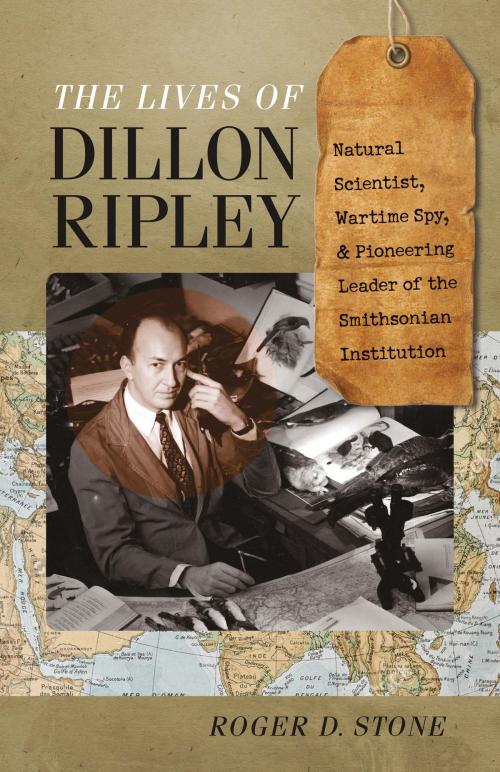The Lives of Dillon Ripley
Natural Scientist, Wartime Spy, and Pioneering Leader of the Smithsonian Institution
Nonfiction, Science & Nature, Biography & Memoir| Author: | Roger D. Stone | ISBN: | 9781512600612 |
| Publisher: | University Press of New England | Publication: | June 6, 2017 |
| Imprint: | ForeEdge | Language: | English |
| Author: | Roger D. Stone |
| ISBN: | 9781512600612 |
| Publisher: | University Press of New England |
| Publication: | June 6, 2017 |
| Imprint: | ForeEdge |
| Language: | English |
A Yale-educated Renaissance man, S. Dillon Ripley was a “courtly, determined, hugely ambitious, energetic, funny, and colorful ornithologist, conservationist, and cultural standard-bearer” who led the Smithsonian Institution for twenty years, during its greatest period of growth. During his watch, from 1964 to 1984, the SI added eight new museums and seven new research centers and began publication of the Smithsonian magazine. It was Ripley’s vision that transformed “the nation’s attic” from a dusty archive to a vibrant educational and cultural institution, just as he had transformed Yale’s Peabody museum before it. Prior to his career at the SI, and running parallel with it for the rest of his life, was Ripley’s work as an ornithologist, begun in New Guinea in the 1930s, continued through his PhD from Harvard in 1943, and culminating in his landmark thirty-year project documenting the bird life of India. His lifelong passion for ornithology led him to positions of leadership in worldwide nature conservation. In the midst of these endeavors he was recruited in 1944 to the Office of Strategic Services, a Yalie club at the outset that became the forerunner of the modern CIA. Posted to Ceylon, he recruited and ran agents who reported from and infiltrated Japanese-held Southeast Asia. Roger D. Stone worked with Ripley on the board of the World Wildlife Fund. He has access to the Ripley family’s archives and photos, as well as to the voluminous archives at the Smithsonian and the National Archives, and to over forty hours of transcribed interviews, conducted with Ripley at the Smithsonian.
A Yale-educated Renaissance man, S. Dillon Ripley was a “courtly, determined, hugely ambitious, energetic, funny, and colorful ornithologist, conservationist, and cultural standard-bearer” who led the Smithsonian Institution for twenty years, during its greatest period of growth. During his watch, from 1964 to 1984, the SI added eight new museums and seven new research centers and began publication of the Smithsonian magazine. It was Ripley’s vision that transformed “the nation’s attic” from a dusty archive to a vibrant educational and cultural institution, just as he had transformed Yale’s Peabody museum before it. Prior to his career at the SI, and running parallel with it for the rest of his life, was Ripley’s work as an ornithologist, begun in New Guinea in the 1930s, continued through his PhD from Harvard in 1943, and culminating in his landmark thirty-year project documenting the bird life of India. His lifelong passion for ornithology led him to positions of leadership in worldwide nature conservation. In the midst of these endeavors he was recruited in 1944 to the Office of Strategic Services, a Yalie club at the outset that became the forerunner of the modern CIA. Posted to Ceylon, he recruited and ran agents who reported from and infiltrated Japanese-held Southeast Asia. Roger D. Stone worked with Ripley on the board of the World Wildlife Fund. He has access to the Ripley family’s archives and photos, as well as to the voluminous archives at the Smithsonian and the National Archives, and to over forty hours of transcribed interviews, conducted with Ripley at the Smithsonian.















